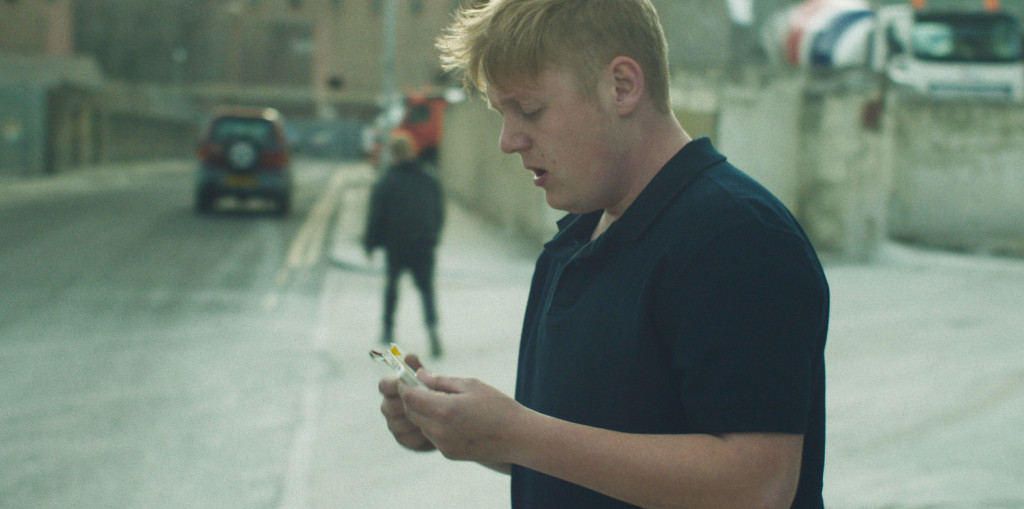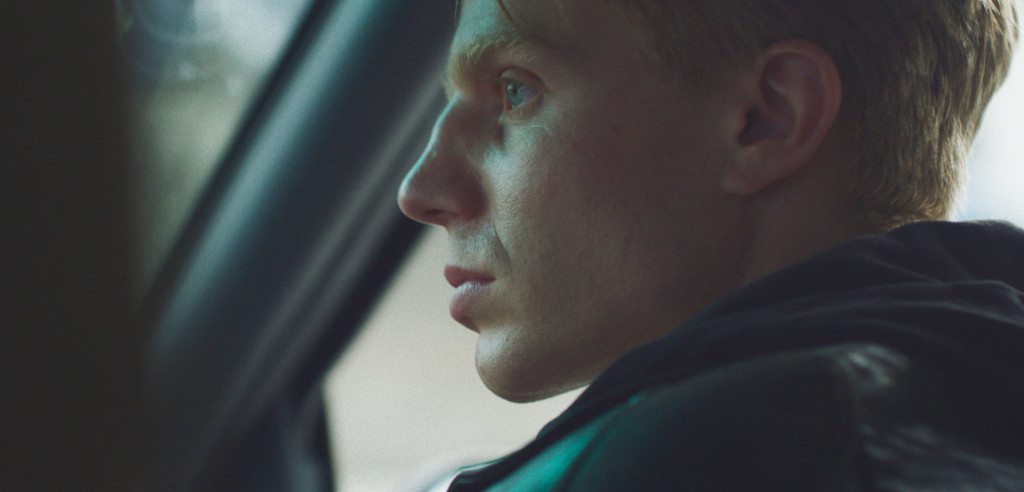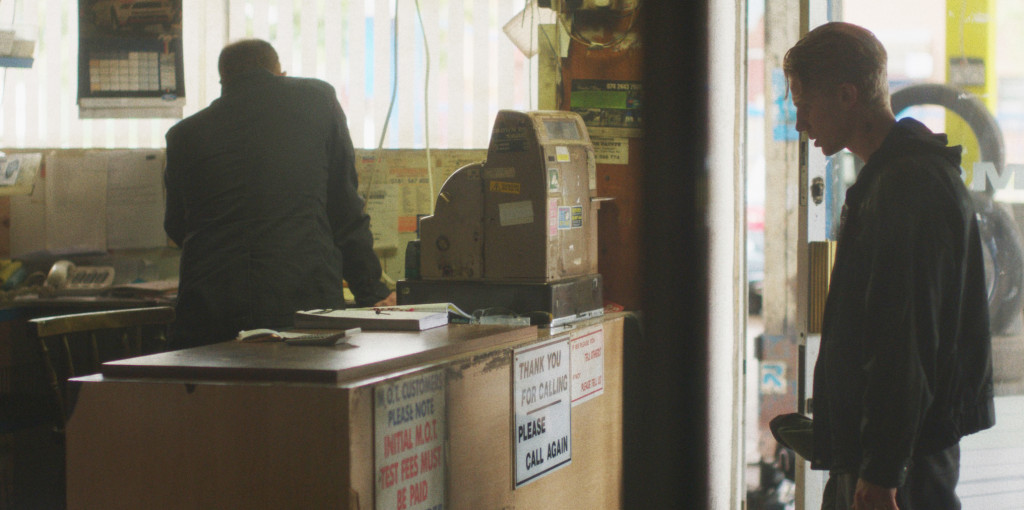The man behind the acclaimed short which premiered at Berlinale discusses his background and approach to working with actors and cinematographers.

Rene Pannevis is the London-based director behind the gripping short Jacked, an unforgettable crime drama that featured both a Berlinale and our Jam Session last month. Following two teenage boys who find themselves in a moral quandary after stealing a car belonging to a widowed mother, the film is intense, heartbreaking and full of heart and soul, perfectly mixing the carefree spirit of energetic youth with the harsh realities of crime and its effect on unknowing victims.
Born in the Netherlands, Rene received his BA in film studies from Utrecht University before enrolling at a directing program at NYU Tisch. Since graduating in 2013 with his thesis film Junkie XL, Rene has produced Jacked through Film London and is currently working on his first feature script, Looted. I spoke to Rene to find out more about the production of Jacked.
How did you combine your life experiences growing up in Rotterdam with the British crime drama genre to create the concept and style of “Jacked”?
Maybe in England they break into cars differently than in Holland, but I wanted to show the quick way how I knew [how to do] it, and that’s with the use of little pieces of a spark plug that you flick against a car window. The window shatters and then you can push the window inside and open the door. The spark plug is not only an original way of breaking into a car but it’s also a very visual way. Also, using a spark plug I could add a weird scene of smashing the spark plug on the train tracks before we go into the stealing of cars. With the spark plug scene I could show the innocence and friendship of Waylen and Russell before we start judging them.

Many elements in the film, including burning the hand (which was my hand), were based on my own experiences, so to me it was very important that the look of Jacked was very real. Realism became the main concept of the film. A big decision was to not have the car on a lowrider but shoot everything with a real driving car. In that sense I think Jacked is more a road movie like Y Tu Mamá También than a British crime drama like Shifty.
But were any British crime dramas a particular influence?
British crime dramas are not really that different from Holland or the rest of the world I think. To me it’s the British humour that stands out. Everything sounds so much better in English. Compare I love you with Ik hou van jou! Also, I think the British are very funny with dialogue. So the language became the main influence. A bit cliche, but for Jacked as a whole Trainspotting was an influence in regards to the beautiful visual style, the realism and the humour.
The film has a strong sense of moral ambiguity - these kids are committing a crime by stealing a car, but clearly have second thoughts about it. What’s your take on their actions - do you think there is a right and wrong, or is there a grey area?
What the kids are doing is clearly wrong behaviour and we should judge that, but they are not wrong people. The leads refer to my own friends who are very loyal, funny, had great hearts, sweet to their moms - but you should not get into a fight with them. Good people do bad things and bad people do good things. That’s just a fact.

How did you work with the actors to develop their characters?
Thomas [Turgoose]’s character, Waylen, is very [much] based on his own life, including the early loss of a family member. To me it was important that Thomas would show in the film he’s more the boss, in control of which car to take, and he should dominate Russell (Charley Palmer Rothwell). Knowing Thomas’ rough past I didn’t want him to play the sweet corky character he’s so used to playing. I wanted the rough and more mature character, and Thomas totally gave what I wanted.
For Charley it was a different story. For him we were developing a character, and therefore we used a lot of fictional backstory. I told him his father left his mother and became rich with some dodgy online gambling stuff. He probably would drive a Jaguar while mom is having difficulties making ends meet. Therefore you can tell that Russell loves his mom and hates his father. To me, Russell was a troubled kid who fights a lot. Therefore we made his knuckles red and put bandaid on his fingers. He thinks more with his hands than with his head and therefore his hands became an important tool. Charley came up with the squeezing of the hand and I liked that cause it gives the notion that he’s nervous, he has a tic a lot of junkies have. I did a bit of boxing when I was young so Charley and I practiced a bit at the boxing gym.
There’s some creative cinematography on display during the driving sequences, with lots of very intimate close-ups that are edited together in a very smooth way. How did yourself and cinematographer Tim Sidell approach these sequences?
Tim and I met in a bar and Tim was carrying a shitload of books with him for reference. We agreed on the colors and I liked one picture in particular that became the shot of Thomas leaning against the fence showing the car in the distance. I [used] a lot of camera movement references, mostly from Fellini, with long takes - and was very keen on not cutting.

Obviously in the car with not much space and especially not much time you don’t have much options, but for us it was very clear that only once they are in the hero car (the Tata) ‘we’ are inside with them and they should feel safe. As you can see [in the film], Thomas takes his jacket off and they laugh and relax. The outside world is of no importance, and therefore Tim shot everything with long lenses to create soft backgrounds.
It’s only when the tape starts playing that the camera takes a position at the back, no handheld [cam], in order to show not only the important message of the tape but also to include the outside world. It’s an important change in narrative and an important change in visual. Every scene in the film is shot slightly different and Tim always had a good reason to do so. The sweeping camera in the car garage was the symbolic whirlwind of the mental state Charley was in, and I liked that on a narrative basis ’cause you could see in one shot how quickly the Tata got stripped down.
You were at Berlinale recently - how was the response to the film?
The reactions were superb. Audience members were waiting outside the cinema to talk to me about the film. Older audience members were in tears. I got even invited to do a guest lecture, but I didn’t have the time. Berlinale is great cause you get to see a lot of films but also get invited for meetings. A win-win situation.

Any favorite films from the festival?
I though the Russian feature debut Rag Union was amazing. It’s shot beautifully, really funny, [has a] nice fast pace and has a great soundtrack. I think it’s important that it’s not just a funny arty-farty film, but it has subtle contemporary social commentary as well. Safe choices were Vinterberg’s Commune, Saint Amour and Midnight Special. The documentary Curumim was very strong, about a Brazilian drug smuggler who got caught at Jakarta airport with 13.5 kilograms of cocaine hidden in his hang-glider. He’s number 27 on death row in Indonesia, and he managed to get a camera inside the prison and starts documenting himself. I felt heartbroken at the end, and I admire the director’s strong point of view.
Can you tell me about your in-development feature script, “Looted”? Sounds like it could have some similarities to “Jacked”.
We received some development money for Looted to finish the writing. It looks a lot like Jacked concerning young criminal minds dealing with moral issues. The tone is funny, but dramatic as well. Again, it explores the effect of theft on innocent people, it explores the dangerous friendship between young criminals, and it raises the question again - what is “doing the right thing”?
For more about Rene’s work, visit renepannevis.com.


